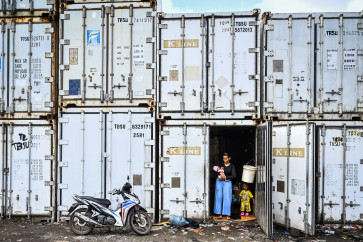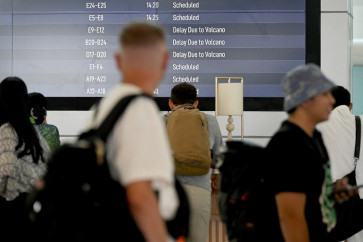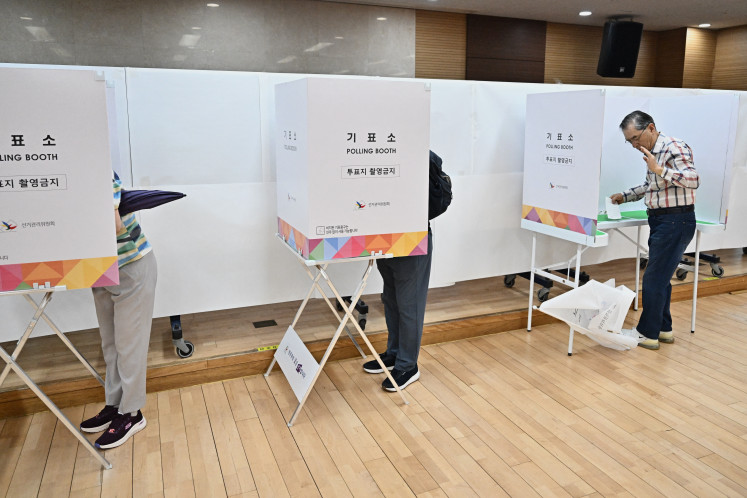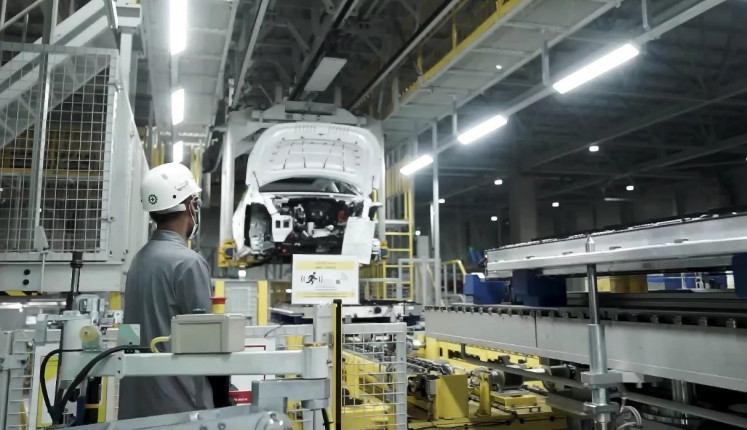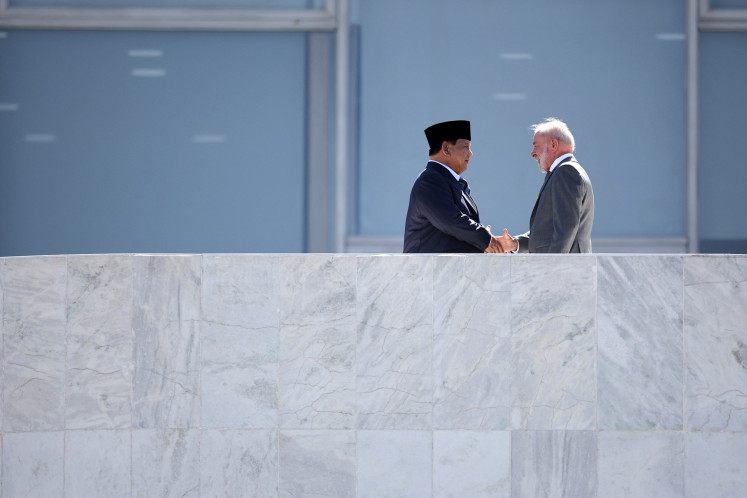Popular Reads
Top Results
Can't find what you're looking for?
View all search resultsPopular Reads
Top Results
Can't find what you're looking for?
View all search resultsCOVID-19 opportunity to enhance our environmental commitments
For some, the post-COVID recovery is an opportunity to boost low-carbon development, including a scaling-up of cleaner and more sustainable transportation systems. However, many remain doubtful.
Change text size
Gift Premium Articles
to Anyone
I
n the race for the worst year on record, 2020 has already passed 2001 (9/11) and is nipping at the heels of 2008 (Global Financial Crisis); although stalwarts such as 1929 (The Great Depression) and 1939 (World War II) remain firmly in the distance.
To be clear, the COVID-19 pandemic is first and foremost a public health and humanitarian crisis. The economic impact, however, has been devastating. From Johannesburg to Jakarta, images of empty streets in otherwise bustling metropolises are vivid reminders that the solution to this pandemic has put a firm stop to economic activities.
The International Monetary Fund forecasts Indonesia’s growth in 2020 to shrink tenfold to 0.5 percent, although effective physical distancing policies combined with fiscal stimulus could ameliorate this scenario considerably, according to Arief Anshori Yusuf, a professor of economics at Padjadjaran University.
While moments such as these leave permanent scars on the body economic, they also inspire moments of reflection. One of the unintended consequences that has not gone unnoticed is the sudden (re)appearance of rare glimpses of natural beauty in large cities, thanks to the clearing-up of air quality.
For some, the post-COVID recovery is an opportunity to boost low-carbon development, including a scaling-up of cleaner and more sustainable transportation systems. However, many remain doubtful.
Like other emerging economies, Indonesia faces many daunting environmental challenges, such as deforestation, severe air and water pollution and extreme weather patterns that lead to disruptions to agricultural. Policies to address these problems require strong public support nearly everywhere, particularly in a country like Indonesia whose main exports (extractive industries and commodities) are the product of economic activities deemed harmful to the environment.
A lack of public support makes it difficult to mobilize voters to create the political capital to push through the wide-ranging economic reforms needed to combat environmental problems. Without a strong civil society that continuously applies pressure to keep the government on track with its climate goals, the ability to implement these reforms at all levels of the government will be uncertain.
However, our analysis using the 2019 CSIS Indonesia survey also suggests that public attitudes toward environmental protection in Indonesia may be less pessimistic and more nuanced than we’re accustomed to believe. In fact, concerns for the environmental issues appear to increase the more local and contextualized they are.
In this vein, it is equally important to remind the public that air pollution, which is temporarily on the decline, is only one of the many environmental issues Indonesia faces. Under the Paris Agreement, Indonesia committed to reduce its greenhouse gas (GHG) emissions by 29 percent from a business as usual scenario by 2030 using its own financial resources. While transportation and energy make up a significant part of Indonesia’s carbon profile (22 percent based on 2013 figures), the largest contributor to GHG emissions in Indonesia is actually forestry and land-use.
Without substantial progress in reducing deforestation, forest degradation and fires, particularly those affecting peatlands, Indonesia will be hard-pressed to meet its emission reductions commitments. Again, we believe this will be difficult to achieve without continued public support.
A major cause of deforestation in Indonesia is the consumption of vegetable oil, such as palm oil, which is used in food and biodiesel. Yet, palm oil is an important export commodity for Indonesia, valued at about US$17 billion in 2013, according to the United Nations Food and Agriculture Organization (FAO). Since 2011, a moratorium on new primary and peatland forest use licensing has been in place to curb the draining of peatland and land clearance for agriculture, including palm oil plantations. These moratoriums are economically costly.
What can governments do in this situation? It may be useful to point out that another headline finding from our study is that while Indonesian voters may be more “dismissive” of long-term environmental issues such as the degradation of forests, there is evidence that they tend to hold their government leaders accountable for environmental degradation.
We found that of respondents who rated the incumbent’s environmental conservation programs favorably, 62 percent intended to vote for the incumbent presidential candidate, while 24 percent would vote for the opposition candidate. This should provide an incentive for the Indonesian government to continue stepping up its environmental commitments, including meeting its emissions reduction targets.
How do we connect this with government policy responses to COVID-19? To an extent, the impact of the SARS-CoV-2 virus on climate change will be a function of the kinds of fiscal stimulus/fiscal relief measures adopted in the post-pandemic world. Ideally, one would want to avoid what happened in the aftermath of the 2008-2009 global crisis, where China’s stimulus measures actually boosted GHG emissions and carbon emissions rose globally by 6 percent in one year, according to a 2020 World Bank study.
A more successful model would be to borrow from South Korea, whose 2008 stimulus package included big investments in energy efficiency, nature conservation, clean energy options and sustainability of transportation.
The Indonesian government seems to have made an aspirational commitment to combat climate change, yet the COVID-19 fiscal stimulus and relief packages make no mention of redesigns of development, industry, transportation and energy activities to control emissions. In fact, during the President’s inauguration speech in October 2019, the environment was not mentioned at all.
______
Puspa Amri is an assistant professor of economics at Sonoma State University and a regular visiting fellow at CSIS Indonesia. Kurnya Roesad is a senior economist at the Global Green Growth Institute Indonesia. Yose Rizal Damuri is the head of the economics department at CSIS Indonesia. This article originally appeared in CSIS Commentaries.



